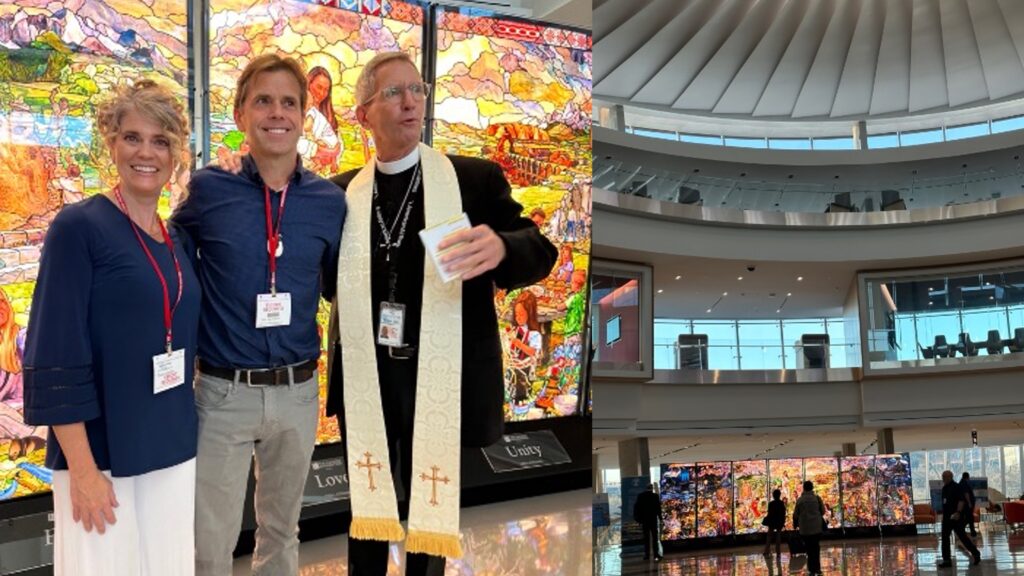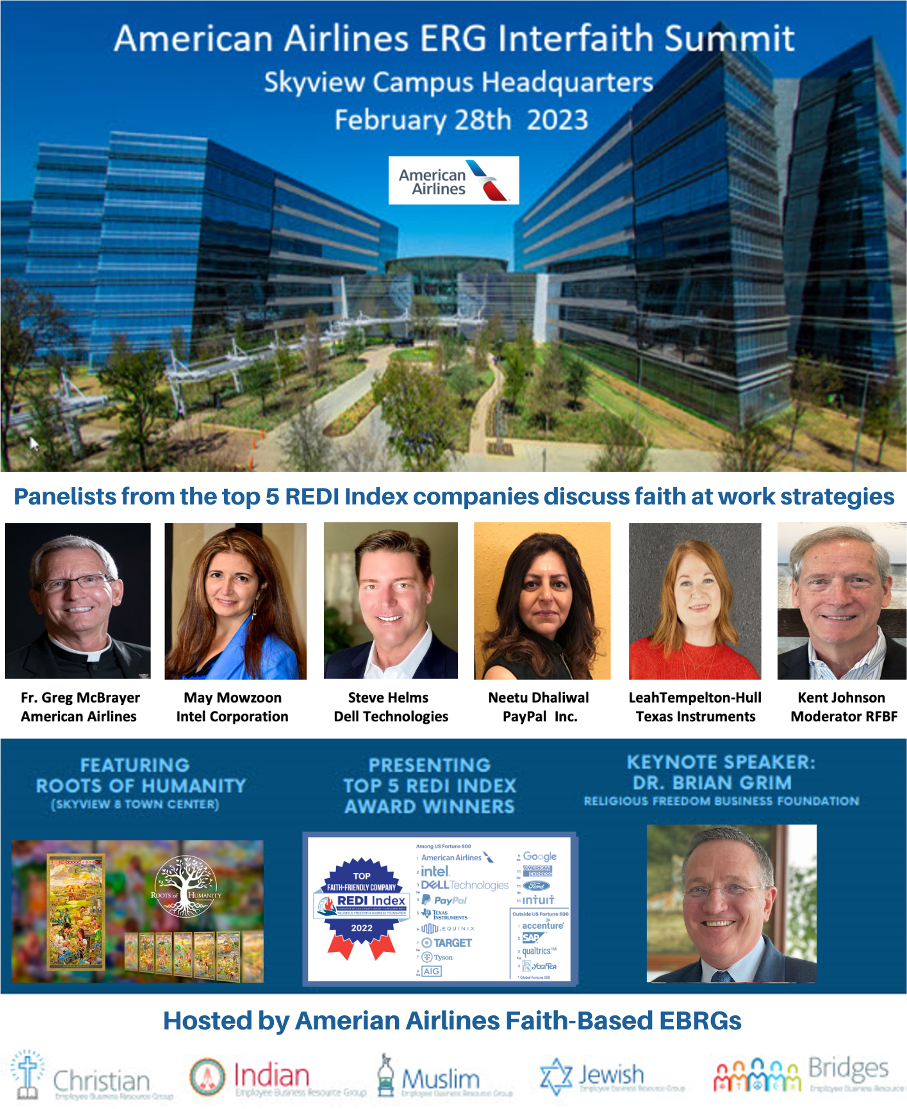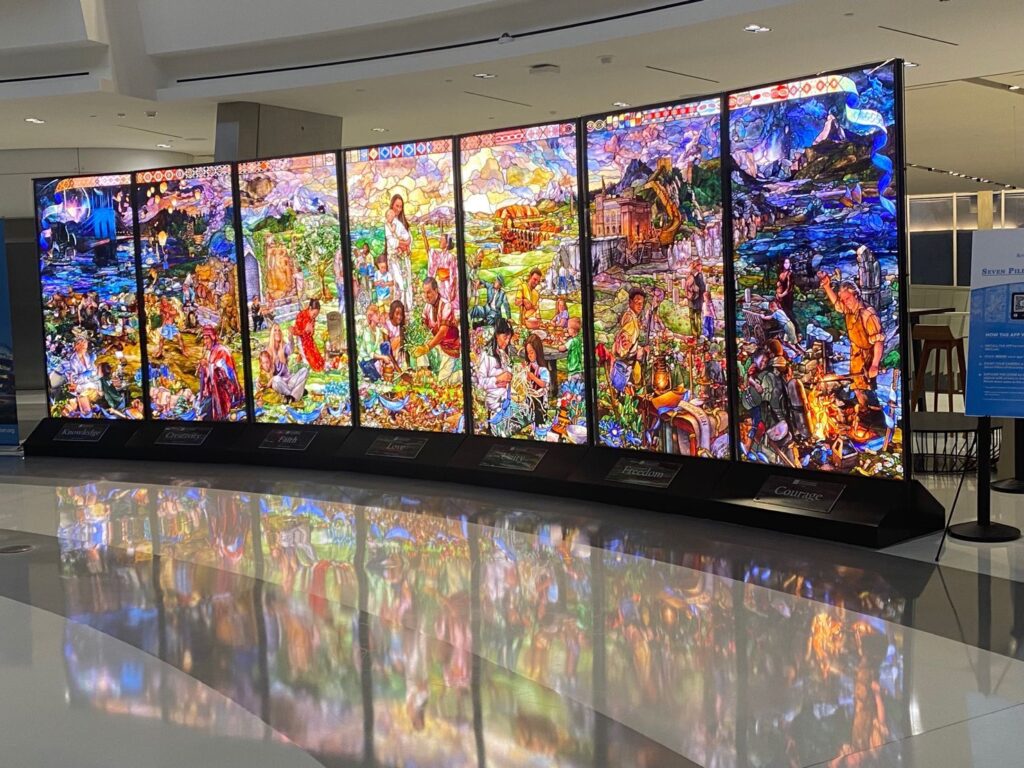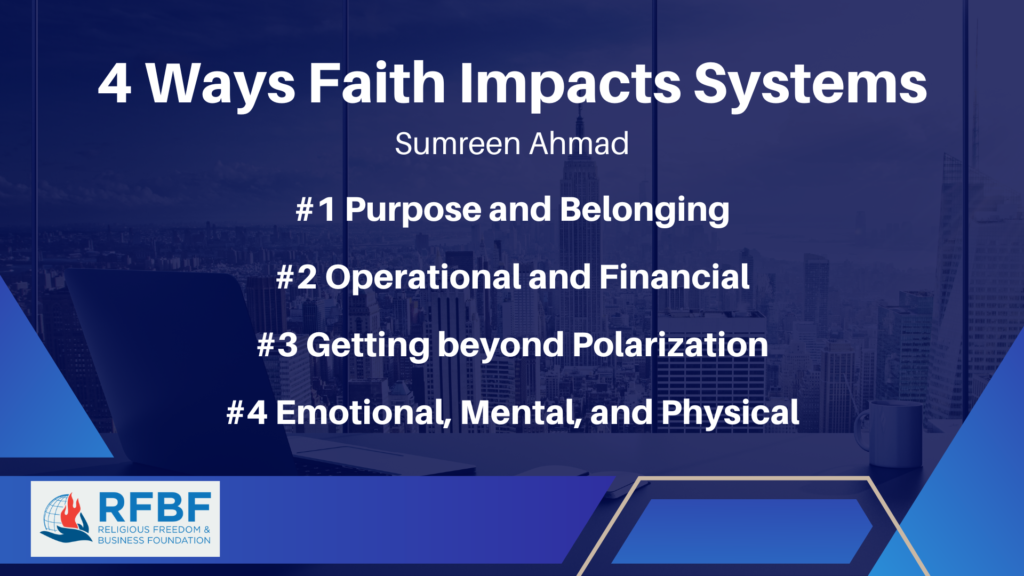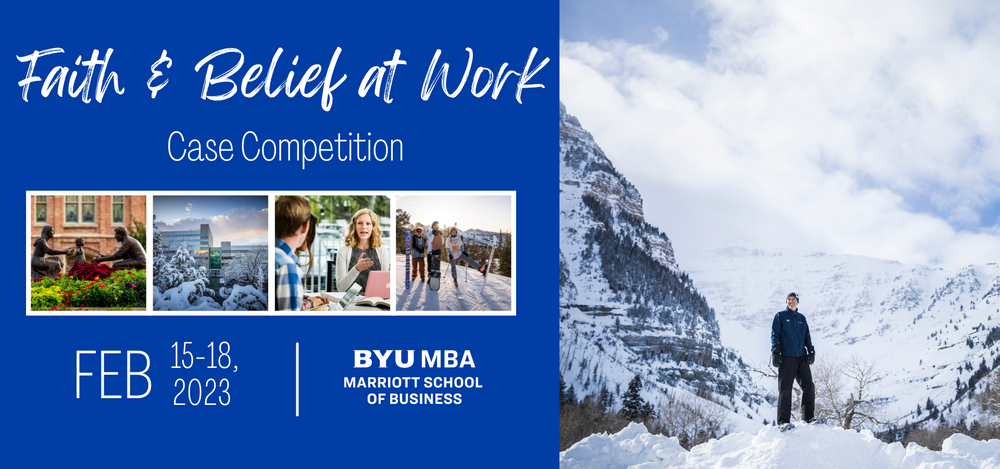 By Brian Grim
By Brian Grim
MBA students from eleven of America’s leading business schools competed to design the most sustainable way for a company to institutionalize faith and belief as part of a Fortune 100’s core diversity, equity and inclusion (DEI) initiatives.
At the closing banquet of the three-day competition, Sumreen Ahmad, Accenture’s global lead for change, spelled out four distinct areas where faith’s impact in organizational systems cannot be ignored.
Teams from business schools including The Wharton School at Penn, Kellogg School of Management at Northwestern, and the Mendoza College of Business at Notre Dame, competed for cash and airline mileage prizes at the 1st annual BYU MBA Case Competition: Faith and Belief @ Work at the Brigham Young University’s Marriott School of Business in collaboration with the Sorenson Center for Moral & Ethical Leadership.
As part of the learning events at the competition, Paul Lambert, RFBF Senior Business Fellow, shared the three B’s of Religious Literacy: Belief, Behavior & Belonging.
The Case Competition was sponsored by American Airlines, Equinix, PayPal, the Religious Freedom & Business Foundation, and Spudnik Donuts.
MBA students are also invited to participate in our national Faith@Work ERG and Corporate Chaplain Dare to Overcome Conference in Washington, DC, where Fortune 500 champions of religiously inclusive workplaces will share best practices and engage in cutting edge discussions of where this hopeful and exciting movement is heading.
Please join us in Washington DC, this May 22-24!
 Sean (ESKOH) Koh, CEO of Koherent Inc., delivered the Keynote at the March 3rd Women’s CEO Roundtable. ESKOH stands for “Every Situation Kan Offer Hope.”
Sean (ESKOH) Koh, CEO of Koherent Inc., delivered the Keynote at the March 3rd Women’s CEO Roundtable. ESKOH stands for “Every Situation Kan Offer Hope.”



